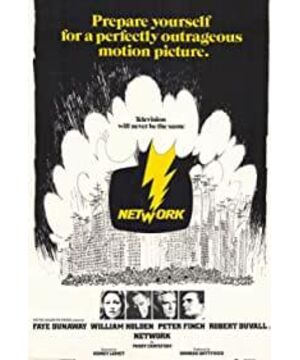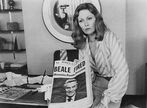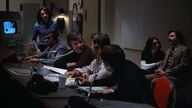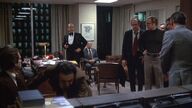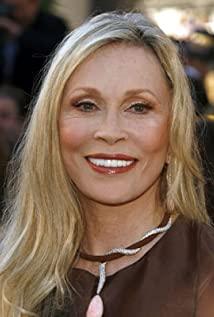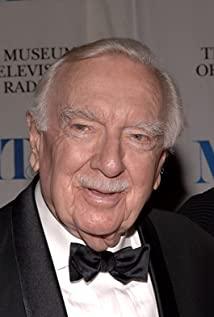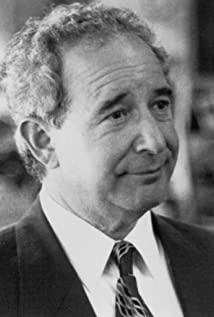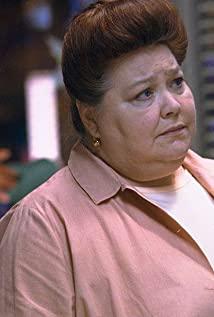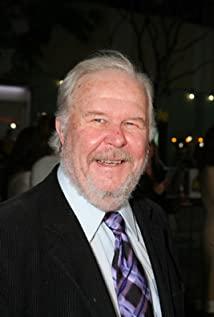The film tells the ups and downs of UBS TV News Department's programs in the third person, and puts the behind-the-scenes operation of a program to the front desk. Perhaps, I will name this movie "The Birth of a High-Viewing Program". Such a successful program was facilitated by the joint efforts of several parties.
The core characters of the film, Howard Beale, Max Schumacher, Diana Christensen, and Frank Hackett, mainly represent the power of the three parties. The first force is Beale himself, he is the soul of the whole show, but in fact, he should be a patient with a mental disorder (perhaps schizophrenia), falling down from the auditory hallucinations and frequent fainting he described. Gu Zi's loud monologue regardless of time and occasion, we can see that he suffers from some psychological diseases. This may be caused by his old age and widowed loneliness, combined with work pressure and unemployment anxiety. Although he was "excellent" in his work, it was because the audience liked to appreciate someone who was already "Mad" shouting out his own voice through his own call sign. As if everyone was watching a madman or a fool, Beale became the center of the public. He played to his fullest and didn't think he had any problems.
As a friend of Beale, Max recognized his illness early, so he asked Beale to quit for rest and recuperation. But it was also him. Because of his dissatisfaction with Hackett and president Nelson Chaney, Ren Beale recklessly made the show’s ratings soar. Although he later tried his best to organize it, he lost his backing due to Nelson’s illness. Ability to compete with Hackett, was swept out. Max and Nelson constituted the second force in the TV station. They represented most of the people working in the media field at that time, adhering to a professional philosophy and dismissing the emerging forces led by Diana and Hackett. When Max submitted his resignation due to dissatisfaction, Nelson suggested that he stay because he needed manpower to "fight" Hackett, but a heart attack made him withdraw and also forced Max to leave.
Hackett has always been a success in the film, even though Beale revealed that Saudi Arabia had purchased a US company in the end he was unharmed in the end. Together with Diana, he continued to chase ratings and profitability, and abandoned the professional ethos of the older generation of journalists. As a producer, Diana has taken the business operation to the extreme. She is no longer satisfied with reporting news. She wants to create news to manipulate news, and she does not hesitate to join forces with terrorists to create terrorist incidents for reporting. The decline in ratings is their death knell. In order to avoid this, they will not hesitate to replace the host. If they cannot be replaced, they can even use assassination methods. Human lives are far less than a percentage of the ratings in their eyes. The change. They are also crazy, just different from Beale's crazy.
In addition to the above three powers, the fourth power only appeared later in the film. Arthur Jensen, as the boss of the entire company, can directly decide the life or death of the show, whether it is profitable or popular. This is the strongest expression of his personal will. This also explains why some programs that are neither popular nor popular are still lingering, because some important people want them to exist, and this will is irreversible. They have been hiding behind the scenes for a long time, and no one knows, and once they appear, it must be an important decision.
In the last part of Network, the dialogue between Max and Diana points out the gap between the generation that grew up on TV and the previous generation, which is also a philosophical topic. Looking at the whole film, the atmosphere of philosophical thinking gradually increased, from Beale's cry for the audience to lose themselves, to Jensen's definition of the new world, "man with a thousand faces", or "one-dimensional man", this post-industry This phenomenon has become more and more obvious with the development of television.
However, the gap between Max and Diana is not as huge as he said. He said: "We can make a special report on murders, disasters and wars. It's called "Terror of the Week". The ratings will definitely rise." When Beale said that he was going to commit suicide, this might be a joke. And Diana coincided with Max and implemented it effectively, and finally established a column like "Mao Zedong Time". When Diana commented on Max’s news, they mentioned that the length of their news about naked women riding horses is higher than that of international news. This is also true. Their journalistic concepts cannot be said to be different, but Diana is more radical and maddening in terms of progress.
Therefore, after watching Network, in addition to thinking about the meaning of TV itself, I have a new understanding of TV program production and success: TV program production is not entirely in accordance with the mode of commercial operation, and in accordance with rationality. In the meantime, uncertainty is also mixed in. For example, the host’s own unique style, momentary uncontrollable mood swings or illnesses, like Beale, can cause him to do some extraordinary things; and the person in charge may also relax the gates due to momentary enthusiasm, such as Max ignores the upper-level. Blame for finishing Beale's show. These unexpected events eventually contributed to the increase in the ratings of the program and created a new successful program model. After Hackett took over, a comment directed to the boss was not sentenced to death due to the boss's personal expectations of Beale. Instead, it entered a period of tedious show decline, which could not be reversed due to the boss's personal preferences. These unexpected factors affect the production and income of TV programs, and pure TV production theory cannot solve these problems.
In order to solve the boss's control of the show, the production team made an amazing decision to give the movie a satirical ending-a live assassination. Beale became a victim of the producer's "policy at the top and countermeasures at the bottom". The final narration of the film "This is the story of Howard Bieu, the first brutally murdered case because of low ratings", which confirms that this is a fableful movie. Because in real life, more uncertainty can solve the problem of the producer in other ways.
View more about Network reviews


